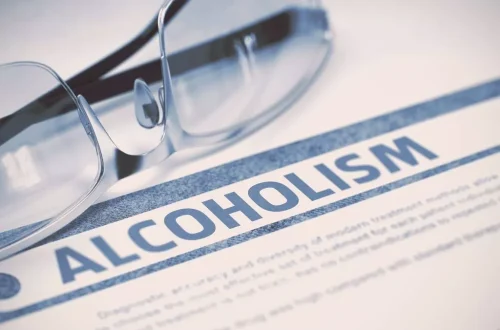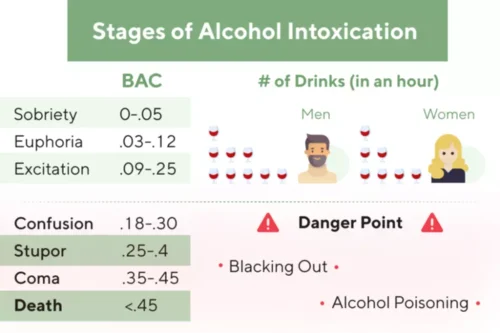
People with Fetal Alcohol Spectrum Disorder face a heightened risk of homelessness

There are common setbacks to getting and staying sober like withdrawal, craving, and pressure to use. Relapse rates for substance use addictions are around 40% to 60%. Setbacks don’t erase progress, though, and they don’t mean you’ve “failed” to stay sober.
How to Start Your Sober Journey?
One study found that after being sober for one month, people experience decreases in blood pressure and a lower risk for alcohol-related conditions. Drinking frequently or heavily has several serious health effects. In the short term, it can increase interpersonal conflict, cause hangovers, change behavior, and contribute to injuries and accidents. It can leave you tired, cause an inflammatory response that affects your immune system, and interfere with daily life.
Sobriety Goes Social: Sober Bars Are on the Rise
It’s important that the person get back on track and resume treatment. Alcohol addiction may involve several different treatment methods. It’s important that each person get involved in a recovery program that will support long-term sobriety. This could mean an emphasis on therapy for someone who is depressed, or inpatient treatment for someone with severe withdrawal symptoms. Some people may find that wearable devices and smartphone apps can support their recovery from alcohol use disorder.
Once again, a word changes to keep up with shifts in the addiction field.

Many people who misuse alcohol or drugs have trouble dealing with anger. If left unchecked, anger can have a negative impact on your health and your lasting sobriety. Post-acute withdrawal syndrome (PAWS) involves withdrawal symptoms that persist past the detox period.
- The next is monitoring their behavior and drinking habits to see if it has changed.
- They have also treated their underlying issues (mental health, spiritual, physical) that led to or resulted from their drinking.
- If you or a loved one are struggling with dry drunk disorder, please consider helping the entire family.
- Maybe you discovered moderation wasn’t for you after flirting with the sober curious lifestyle.
- Above all, she recommends folks find their own balance of offering support while also supporting themselves.
- Haley also firmly believes that her addiction had to do with her mental health.
- It can help someone handle withdrawal symptoms and emotional challenges.
- People in recovery from a substance use disorder frequently have problems meeting work-related responsibilities, maintaining employment, and managing money.
- It’s important to not enable destructive behaviors and to maintain appropriate boundaries if the person with the alcohol addiction is still drinking.
Sobering up means you’re in the process of becoming less intoxicated after drinking enough alcohol to get drunk. There really isn’t any way to speed up the process, despite what you may have heard about greasy burgers. Once you stop drinking, the only way to sober up is to wait it out. If you’ve cut out other substances along the way, you may prefer describing your journey as living “clean” rather than just sober. In cases where you have been drinking heavily or frequently for some time, it is a good idea to have your detox supervised by a medical professional to manage potentially risky withdrawal complications. Sober curious culture encourages a sober lifestyle, but welcomes individuals who aren’t willing, ready, or planning to give up alcohol completely.
Practice Healthy Living
The Canada FASD Research Network has put forward a National FASD Framework, proposed as Bill S-253 in the Senate in 2022. The bill is currently waiting to go to committee in the Senate. If passed into law, the framework would be the systematic and co-ordinated effort that is truly necessary to address support for sober alcoholic meaning FASD while recognizing the disorder at a national level. September marks Fetal Alcohol Spectrum Disorder Awareness Month. Now is an apt time to learn more about the disorder and about those who you might know who have it. If you or a loved one are seeking help for an addiction issue, there are so many resources.
- A diagnosis often brings relief, but it can also come with as many questions as answers.
- Removing chemicals from the body is certainly the first step but it doesn’t fix years of maladjustment to life.
- “If you want to maintain the friendship, see a movie or do an activity with them that does not involve alcohol,” says Hafeez.

It can be a good replacement for the release of endorphins caused by drinking alcohol. Alcohol depresses the central nervous system, so it can make you feel lethargic. Once ingested, the liver goes to work metabolizing the alcohol from the body. As a result of this withdrawal, bodily processes that were slowed down, speed up, which can then cause agitation and decrease your ability to achieve deep sleep. Surely non-alcoholic wines taste just like the real thing because they start out just like the real thing.
- Dr. Umhau urges folks not to overlook prescription medications like naltrexone or acamprosate.
- These include people, places, and situations that create thoughts or cravings linked with substance use.
- The definition of alcoholism is being unable to stop drinking despite negative consequences.
Sober But Miserable? You Could Have Dry Drunk Syndrome

The fundamental component to these improvements is knowledge of FASD. These impacts mean that people with FASD can struggle with everyday tasks. For example, memory challenges may make tasks like paying rent https://ecosoberhouse.com/ and taking medication on time difficult. The cognitive impacts of the disorder can also impact a person’s performance at work. That can make finding and keeping a place to stay all the more challenging.
